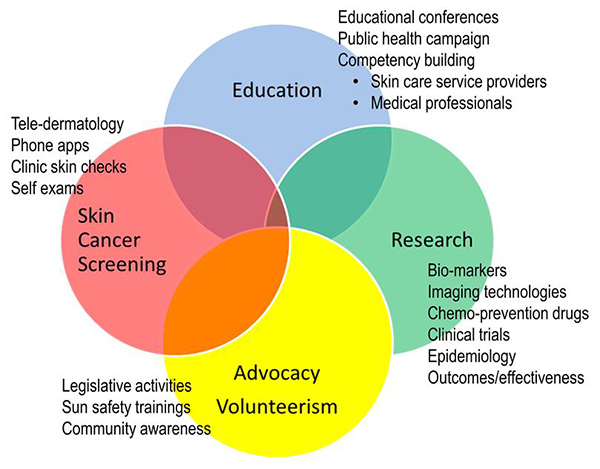Melanoma Community Registry

Fighting the War on Melanoma™ together.
The Melanoma Community Registry is a major resource of volunteers used to fight the War on Melanoma™. There are many questions about melanoma risk, early detection, and treatment that need answers, whether from a personal perspective or that of a cancer researcher. The Melanoma Community Registry was developed to speed the research process by identifying people affected by this disease and/or interested in learning or doing more. By having an engaged community of volunteers, studies enroll more quickly, education is spread more broadly, public policy is changed more effectively. This is a place where you can have a voice and make a direct impact. It is a key resource for waging a War on Melanoma™.
The Melanoma Community Registry is an ethics-approved research project (IRB #10561) intended to build a cohort or group to study melanoma. Since its launch in May 2014, we have started to gather an army melanoma survivors, family members, and friends ("See how we're growing"). But we need more! Registering is easy as 1, 2, 3: click the Register Here button above, fill out the data forms with your information, and submit!
By joining the Registry, you will receive information about future melanoma-related research projects, educational events, and volunteer opportunities. You can also respond to survey questions and provide vital information to researchers seeking to find improvements in prevention and treatment. One opportunity to participate is through Mole Mapper, a new iPhone app that allows research participation while tracking moles on your body. Through the Melanoma Community Registry, we will inform you of other ongoing opportunities. You choose what is of interest.
